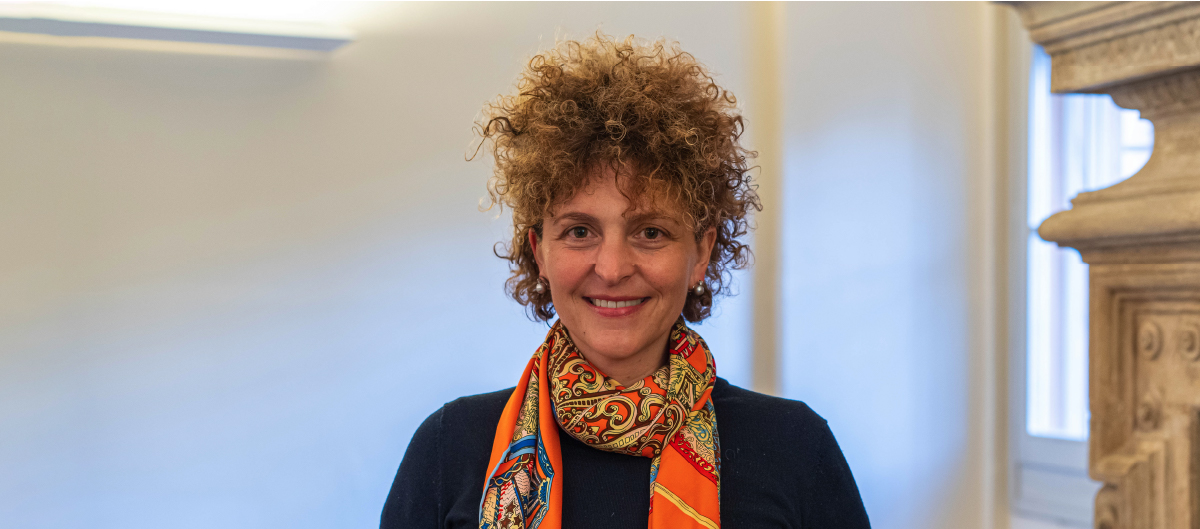
Food Innovation and Regeneration Executive Master. An interview with Sara Roversi
21 December 2023Sara Roversi is the Director of Future Food Institute, a nonprofit organization dedicated to food ecosystem innovation. At BBS, she is the Executive Director of the Food Innovation and Regeneration Executive Master.
What does innovation and food regeneration mean?
The concept of regeneration requires a change of mindset appropriate to current conditions: the linear process of resource extraction cannot continue forever, we have to start living circularly. We can no longer exploit, we must innovate and think about how to regenerate resources.
Innovation means embracing a necessary paradigm shift: we need a systemic approach, able to embrace all the spectrums of sustainability, looking not only at the consumer needs but at each part of the production chain.
In food today, ownership is less important than access: as in the sharing economy, the B&B phenomenon and cryptocurrencies, centrality, and top-down structure are challenged by decentralized and distributed power.
On a planet with non-infinite resources, it is necessary to catch the opportunities offered by the circular economy.
Why the decision to dedicate a master’s degree to these issues?
Today the great challenge is to carry on these practices with one goal: to feed everyone.
For this, we need to aggregate knowledge and models and make sure that everything we study can become useful in practice. Innovation must bring with it ethical virtue, and yet decline it into applied models through which agribusiness companies and organizations can change their role in the system.
We must be ready to experiment with new business models, otherwise, the theory remains unproductive.
How is food innovation moving and developing in Italy and Emilia-Romagna today?
If Emilia-Romagna is known for its food and wine excellence, it is because there is so much innovation. Today we have to start by saying that innovating is part of the DNA of tradition.
Innovation that must focus on the study of new models that hold together integral ecological development, political and environmental vision, and sustainability. Analyzing how much we consume and how much we will be able to restore to protect the environment.
Then there is the crucial issue of individual health, on which the food industry has a direct impact. Again, the social dimension: food is a cultural pillar: it aggregates, unites, and connects human beings. It is an asset that must be considered in all its functions.
Finally, the economic issue: we need to make sure that all theories related to sustainability have a pragmatic translation that works. True sustainability aims to achieve a balance between all these aspects.
What is the Future Food Institute?
We were born with the ambition to be an ecosystem. This ambition requires great effort: to live and thrive, ecosystems must be open and contaminable but codified and the relationships must be balanced. We have three verticals that guide us: knowledge, education, and practicality.
All programs are focused on organizing boot camps and immersive experiences to train people to become agents of change, bearers of a new vision able to have a direct and powerful impact on the world, not just in theory.
Then, hands-on research with living labs, academic partners, and concrete challenges intersecting sustainability, food, climate, and agriculture.
We aim to fight food waste, study and preserve Mediterranean food, design targeted actions with companies, or participate in European projects.
Then, there is a second area, the community: we participate in summits, such as Cop28 in Dubai, and we oversee the major events.
In 10 years, on these three verticals, we have consolidated a set of very targeted, multisectoral, and multicultural projects to understand and disseminate what is the role of food: the connection between health, culture, and the planet.
Who is the right candidate for this master’s degree?
I wish there were many of them because the richness of the master’s program will also come from the richness of its participants.
The ideal candidate is someone who wants to make a difference in their company or organization, someone who wants to be exposed to critical thinking on these issues to understand how to have a positive impact in practice.
It takes special training: you have to become very good at being a crucial part of the ecosystem, overcome the barriers of compartmentalization, and find the tools to do innovation.
The Food Innovation and Regeneration Executive Master is a hybrid, part-time program developed by BBS and the Future Food Institute. It is an inclusive program designed for R&D managers, consultants, and entrepreneurs capable of having a systemic and revolutionary vision. Who want to acquire the skills to lead a disruptive and necessary innovation process.
